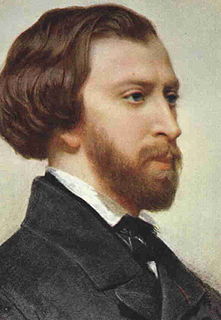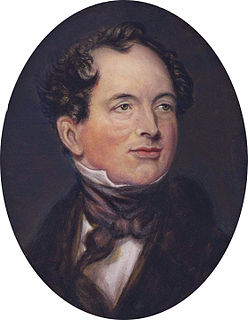A Quote by Alfred de Musset
A lively retrospect summons back to us once more our youth, with vivid reflex of its early joys and unstained pleasures.
Related Quotes
Every funeral may justly be considered as a summons to prepare for that state into which it shows us that we must some time enter; and the summons is more loud and piercing as the event of which it warns us is at less distance. To neglect at any time preparation for death is to sleep on our post at a siege; but to omit it in old age is to sleep at an attack.
Poetry reveals to us the loveliness of nature, brings back the freshness of youthful feelings, reviews the relish of simple pleasures, keeps unquenched the enthusiasm which warmed the springtime of our being, refines youthful love, strengthens our interest in human mature, by vivid delineations of its tenderest and softest feelings, and through the brightness of its prophetic visions, helps faith to lay hold on the future life.
Men ought to know that from the brain and from the brain only arise our pleasures, joys, laughter, and jests as well as our sorrows, pains, griefs and tears. ... It is the same thing which makes us mad or delirious, inspires us with dread and fear, whether by night or by day, brings us sleeplessness, inopportune mistakes, aimless anxieties, absent-mindedness and acts that are contrary to habit.
Running, close companion to death, summons us to the most vivid acts of life. Our ancestors (we have forgotten) ran for food and for love, love and lust. For us, a prime symbol of sexuality is the automobile. For the ancients it was the chase, the foot race. Satyr and nymph, maiden and god, hot pursuit. The mythic hunters, Diana and Atalanta, available only to the males, men or gods, who could outrun them; death to all others.
If a friend is the one who summons us to our best, then is not Jesus Christ our best friend, and should we not think of the Communion as one of His chief appeals to us to be our best? The Lord's Supper looks not back to our past with a critical eye, but to our future, with a hopeful one. The Master appeals from what we have been to what we may be. He bids us come, not because we are better than we have been, but because He wants us to be. To stay away because our hearts are cold is to refuse to go to the fire till we are warm.






































